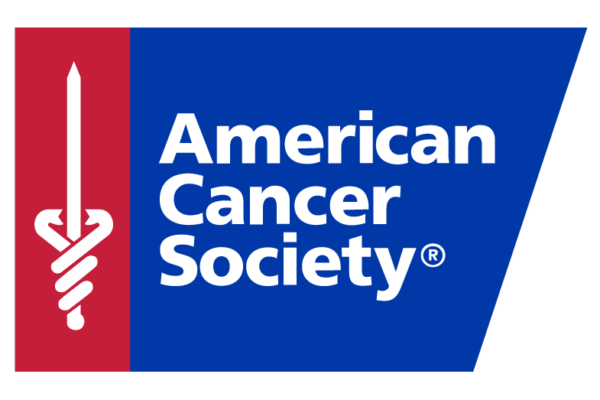Hope. Awareness. Research.
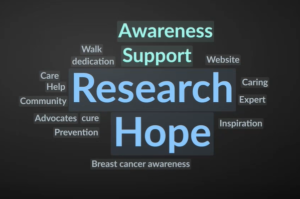 These were a few of the words that came to colleagues’ minds when asked about the American Cancer Society (ACS) during a recent event. ACS is one of eight organizations Perficient and our colleagues support through our Perficient Gives charitable match program, which is focused on advancing STEM education and improving health and wellbeing. Throughout 2022, the Perficient Giving ERG is hosting “Get to Know” events with each of these wonderful causes to educate our colleagues on their mission and how each of us can help.
These were a few of the words that came to colleagues’ minds when asked about the American Cancer Society (ACS) during a recent event. ACS is one of eight organizations Perficient and our colleagues support through our Perficient Gives charitable match program, which is focused on advancing STEM education and improving health and wellbeing. Throughout 2022, the Perficient Giving ERG is hosting “Get to Know” events with each of these wonderful causes to educate our colleagues on their mission and how each of us can help.
On the 22nd Anniversary of World Cancer Day, Perficient took a moment to stand in solidarity with those in the battle against cancer. As part of the movement for cancer awareness, we held our “Get to Know: American Cancer Society” event. The event featured an informative discussion with Maggie Grotefendt and Kate Bohn from ACS moderated by Lynn Brading, global alliance director for Perficient’s Adobe partnership and a proud cancer survivor.
“I’m a cancer survivor and thriver. Unfortunately, this is my second time battling breast cancer. I was diagnosed in June 2019 and then again in July 2021. I just recently finished chemotherapy and had a double mastectomy. Cancer does not discriminate and can affect anyone. I’m very much aware of what the American Cancer Society does, especially in research.“
– Lynn Brading, global alliance director, Perficient
Here’s a recap of our conversation with ACS, which covered their mission and programming, as well as prevention and volunteer resources anyone can access.
What the American Cancer Society does:
The ACS has been around for 100+ years and is one of the most trusted leaders in the fight against cancer as well as the second largest funder of cancer research of in the United States.
Outside of the federal government, the ACS has been playing a vital role in the fight against cancer and has evolved quite a bit as an organization.
“One of the primary issues is that many don’t share their diagnosis or their symptoms with friends or family out of fear. To overcome that, we initially started as an awareness organization, so that people knew what cancer was, what to look out for, and the resources available for them. Our mission is to save lives, to celebrate lives, and to lead the fight for a world without cancer.
We are fighting for fair and just opportunities for all. We are fighting for decreased cancer mortality rates and increased life expectancies. We are fighting for affordable, high-quality treatments, and we are ultimately fighting for a world without cancer. How wonderful would that be?
– Maggie Grotefendt, cancer control strategic partnerships manager, American Cancer Society
The good news?
The risk of dying from cancer is declining and has decreased by 32% over the past 28 years, equating to almost 3.5 million fewer cancer deaths during those years. This positive movement can be contributed in part to improvements in advocacy, prevention, and accessibility to treatment.
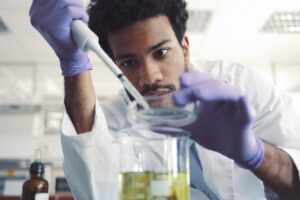 The ACS advocates to increase funding for state programs that provide free cancer screenings to low income, uninsured, and underinsured individuals. They are also working on Medicaid expansion throughout the United States. In addition, the ACS is providing change grants to federally qualified health centers throughout the nation to help screen under resourced areas, identify barriers for those health systems, and find solutions to those barriers.
The ACS advocates to increase funding for state programs that provide free cancer screenings to low income, uninsured, and underinsured individuals. They are also working on Medicaid expansion throughout the United States. In addition, the ACS is providing change grants to federally qualified health centers throughout the nation to help screen under resourced areas, identify barriers for those health systems, and find solutions to those barriers.
“We’re advocating for policies to ensure quality, affordable, and comprehensive health insurance,” said Maggie. “There’s a lot of health insurance out there that are inadequate. They’re just not good enough, so we’re working to make those stronger. We’re working to keep Medicaid expansion. We want treatment that is comprehensive, barrier free, and widely promoted. “
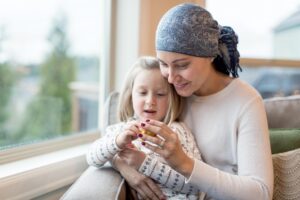 These advances underscore the importance of early detection. Screening is key to stopping cancer from getting into late stages. It is now possible to pinpoint certain cancers early and treat them the way they should be treated, helping more people become survivors.
These advances underscore the importance of early detection. Screening is key to stopping cancer from getting into late stages. It is now possible to pinpoint certain cancers early and treat them the way they should be treated, helping more people become survivors.
“Always listen to your body,” said Lynn. “Know your body. Look at your body, know what’s different and make sure you report that because it might just save your life.”
Resources:
In addition to the incredible advocacy and policy work ACS is providing, they also offer a wide array of treatment, prevention, and awareness resources for cancer patients, their families, and the general public.
Two of the most important resources available are the ACS helpline (1-800-227-2345) and their cancer.org website, which includes a chat feature. Both of these resources are designed to connect users with relevant and timely cancer-related information. In addition to these resources, ACS offers several programs that are providing patients with support throughout their treatment. Two examples of these programs include:
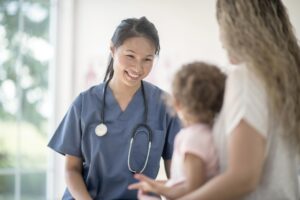 Road to Recovery: Transportation is one of the largest barriers to treatment for patients. Road to Recovery connects patients with volunteers who provide rides to treatment facilities. For areas where there aren’t many Road to Recovery drivers, ACS provides resources to help bridge the gap.
Road to Recovery: Transportation is one of the largest barriers to treatment for patients. Road to Recovery connects patients with volunteers who provide rides to treatment facilities. For areas where there aren’t many Road to Recovery drivers, ACS provides resources to help bridge the gap.- Hope Lodge: For some patients, the hope for effective treatment may be in a different city from where they live. For these situations, Hope Lodges offer cancer patients and their caregivers a free place to stay so they can focus on their health instead of worrying about where to stay or how to pay for lodging.
Three things you can do to support ACS and your own health
With so many great resources and insights shared during the “Get to Know: American Cancer Society” event, here are three takeaways anyone can use to improve their health and support the ACS.
- Get Screened:
 COVID has been rough when it comes to cancer screenings. In 2020 alone, there was a 90% decrease in cancer screenings due to COVID. Unfortunately, delayed screenings lead to delayed diagnoses, which can in turn lead to a lower probability of survival. The ACS has an amazing tool that breaks it down by age and categories of screenings, answers frequently asked questions, and even connects you with a local screening center. Learn more at cancer.org/getscreened.
COVID has been rough when it comes to cancer screenings. In 2020 alone, there was a 90% decrease in cancer screenings due to COVID. Unfortunately, delayed screenings lead to delayed diagnoses, which can in turn lead to a lower probability of survival. The ACS has an amazing tool that breaks it down by age and categories of screenings, answers frequently asked questions, and even connects you with a local screening center. Learn more at cancer.org/getscreened. - Donate blood: “Each time you donate blood, you save eight lives.” The world is now facing an an emergency shortage for blood. This equates to cancer patients, or any patient really, having to postpone surgeries that could potentially save their lives because there simply isn’t enough blood available. Donating blood is one of the most impactful things you can do to help those in need and help save lives.
- Volunteer
“At the American Cancer Society, we like to say that we are volunteer led, and staff supported. We have far more volunteers than we do staff, and we love that our community is engaged in this mission.”
– Kate Bohn, senior program manager, American Cancer Society
The ACS provides several platforms for volunteers to get involved in. In addition to fundraising platforms, there are also educational, policy-driven, and mission-specific opportunities for anyone to get involved with and make an impact.
Anyone interested in volunteering can visit volunteercommunity.cancer.org where the ACS has made it simple to find local opportunities. Simply type in your ZIP code to find volunteer opportunities in your area, information about Hope Lodges, requests for Road to Recovery volunteers, and so much more.
Interested in learning more about the American Cancer Society?
The ACS’s mission is to save lives, celebrate lives, and lead the fight for a world without cancer.
You can read more about the ACS and support them here.
